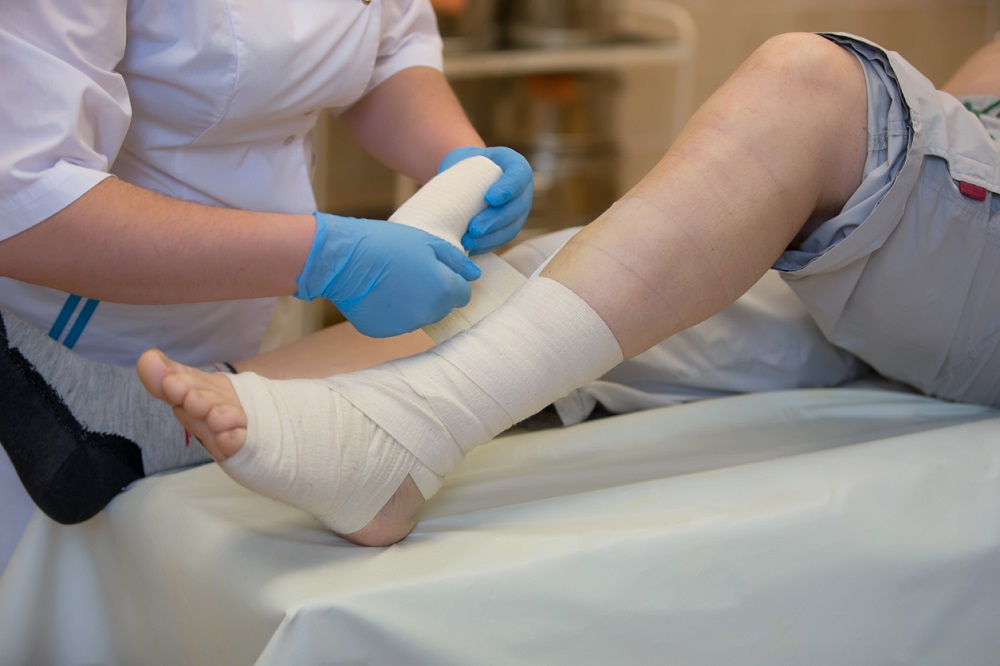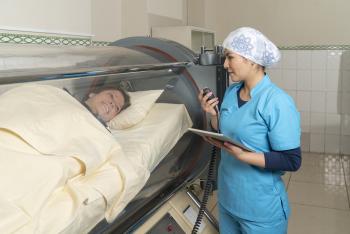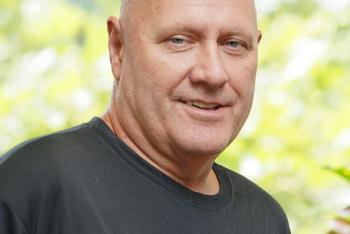Learn how hyperbaric oxygen therapy (HBOT) works and what conditions it can help treat, from chronic...
Read More
Managing diabetes goes beyond balancing blood sugar—it also means paying extra attention to wound care. Even minor cuts or blisters can lead to complications for those with diabetes, as reduced circulation and sensation in the feet, legs and other areas make it harder for wounds to heal.
Here are essential tips for keeping skin healthy, identifying warning signs and knowing when to seek professional care:
“Daily skin checks can help catch small problems before they worsen,” said Ashley Fought, D.P.M., a podiatrist at Inspira Podiatry and Inspira Wound Care. “Look carefully at areas more vulnerable to cuts and pressure, like feet, toes and between fingers.” If you have trouble reaching or seeing certain areas, try using a hand mirror or ask a family member or friend for assistance. Catching a wound early can prevent complications.
Tip: Make skin checks part of your daily routine, like after a shower or before bed. This habit can significantly improve early wound detection.
Keeping skin clean and moisturized is crucial for preventing infection and maintaining skin health. Wash yourself gently every day with mild, fragrance-free soap and lukewarm water, as hot water can dry out and damage your skin. Moisturize afterward to prevent dryness and cracking, focusing on areas prone to dryness like elbows, knees and feet—but avoid applying moisturizer between your toes to prevent fungal growth.
Tip: Choose a moisturizer designed for sensitive skin or specifically formulated for those with diabetes, as these are often free of harsh ingredients.
The right shoes can help prevent blisters, calluses and other skin irritations that can lead to wounds. Look for shoes with a wide toe box, good arch support and cushioned soles to reduce pressure points. Avoid going barefoot, even at home. Wearing breathable, moisture-wicking socks can reduce friction and keep your feet dry, lowering the risk of fungal infections.
Tip: If you’re unsure which shoes are best, ask a podiatrist or a diabetes specialist. They can often recommend footwear brands that offer the best protection.
“Smoking can constrict blood vessels, making it harder for wounds to heal due to reduced circulation,” said Dr. Fought. “Quitting smoking is one of the best things you can do for your health overall.” Many quit smoking programs are available to help those looking to quit, from counseling to nicotine replacement options.
Tip: Talk to your doctor about support resources if you’re working to quit smoking. Even small steps can improve your circulation over time.
Take extra care to avoid cuts when trimming nails or calluses, as even minor nicks can lead to infections. Use clippers carefully, cut nails straight across and avoid cutting them too short. Consider using a pumice stone or emery board rather than a sharp tool for calluses. If you’re unsure how to do this safely, regular foot care from a podiatrist can make a big difference.
Tip: Make nail trimming a part of your wound care routine to prevent ingrown nails and other skin problems.
“With diabetes, wounds can sometimes become infected without causing much pain, so visual signs are important cues,” said Dr. Fought. “Keep an eye out for increased redness, warmth, swelling or any drainage from the wound.” A fever or a foul smell from the wound may also indicate infection.
Tip: Keep a first-aid kit handy with wound care supplies like antiseptic solution, bandages and gauze to treat an infection promptly.
If a wound isn’t healing within a few days or you notice signs of infection, don’t wait to seek medical attention. Seeking prompt care can prevent infections from spreading or becoming more severe. For those with diabetes, routine check-ins with a health care provider, especially if they’re managing chronic wounds, can help ensure any concerns get addressed quickly.
Tip: Schedule regular appointments with a diabetes care team or wound specialist to monitor ongoing skin issues and receive prompt care when needed.
Wound care is a vital part of diabetes management that supports long-term well-being and helps maintain an active, healthy lifestyle. Prevent minor wounds from becoming major complications by following these tips.

Learn how hyperbaric oxygen therapy (HBOT) works and what conditions it can help treat, from chronic...
Read More
Vince Yankowski joined Inspira's Diabetes Self-Management Program and Diabetes Support Group, where...
Read More
Discover the lesser-known type 1.5 diabetes, often misdiagnosed as type 2, and learn how to...
Read More